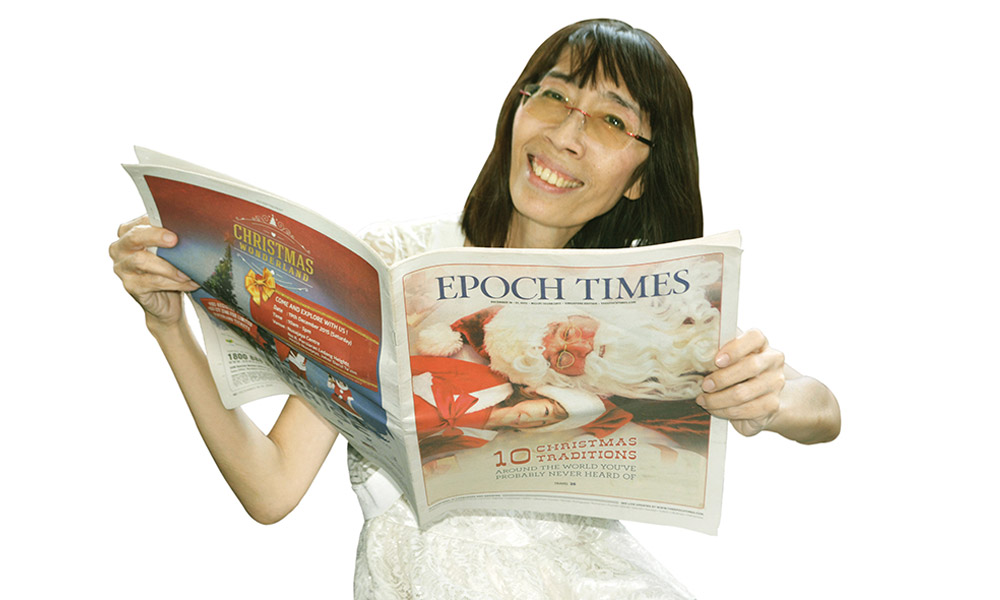By Jennifer Low
The much anticipated debate between Fox Business Network’s news anchor Trish Regan and Chinese state media CGTN’s host Liu Xin about the ongoing US–China trade dispute was finally on air the morning of May 29.
It all started after Ms Regan said on her show ‘Trish Regan Primetime’ on May 14 that the United States was left with no choice but to wage a trade war with China because of the regime’s trade abuses including theft of US intellectual property.
A few days later, Liu Xin responded in her own primetime opinion show accusing Regan of being “so sure of US victimhood, so indignant, that her eyes practically spit fire”.
After days of tweets between the two anchors, an “honest debate” with no “mud throwing” was finally set to be held on Wednesday night 8 p.m. EST (8 a.m. in Singapore on Thursday) talking about trade.
Video link: https://video.foxbusiness.com/v/6042507238001/#sp=show-clips
Ms Liu was invited to Regan’s primetime show and most of what was supposed to be a debate went on in an interview style.
The beginning was a bit awkward, though.
After Ms Regan said “My guest, however, is part of the CCP, and that’s fine. As I said, I welcome different perspectives on the show,” Ms Liu replied: “I have to get it straight. I am not a member of the Chinese Communist Party.”
“I don’t speak for the Communist Party of China and I’m here for today, I am only speaking for myself, as Liu Xin a journalist working for CGTN,” said Ms Liu.
Ms Regan quipped, “But CGTN is part of the CCP.”
CGTN, or China Global Television Network, is the overseas arm of China’s state-run broadcaster CCTV. Earlier this year, it registered as a foreign agent.
The rest of the show featured discussions on trade talks, intellectual property theft, China’s status as a developing economy, tariffs and state capitalism.
Ms Regan asked Ms Liu for her definition of state capitalism.
Ms Liu replied: “We would like to define socialism with Chinese characteristics where the market forces are expected to play the dominating or the deciding role in the allocation of resources.”
Ms Liu mentioned that state enterprises are playing an important but increasingly smaller role in the economy. She also said that 80% of the employees in China were hired by private companies and 80% of the exports were done by private companies.
While indeed private enterprises are the main contributor to China’s output, it is only half of the story.
The other half of the story is that the Chinese economy suffers from severe resource misallocation and the communist party wields tight control over private companies.
According to Michael Hirson, an expert on China with Eurasia Group, in 2016 state-owned enterprises (SOEs) received 83% of new bank loans while only 11% was received by the private sector. This is a huge imbalance of bank loan allocations.
However, based on estimates by Nicholas Lardy, an economist at the Peterson Institute for International Economics, SOEs contribute to roughly 30% of GDP while private firms accounted for the other 70%.
The mismatch between the SOEs’ contribution to GDP (30%) and its share in bank loans (80%) underlines a serious resource misallocation issue — the less efficient and less productive SOEs received more bank credits and crowded out more efficient investments. This could hinder healthy economic growth in the long run.
Hirson also pointed out that private companies are increasingly required to toe the party line.
The communist party’s tighter grip manifests in its requirement of setting up party organisations in companies.
Last year, the Chinese Communist Party (CCP) announced that it would be mandating all publicly-listed companies in the country to set up Party organisations for their employees.
According to Reuters, party organisations exist in 70 percent of the roughly 1.8 million privately owned companies in China.
Party committees within the private companies could influence company decisions. Hirson mentioned that potential party influence has caused private companies in China to be viewed more often as agents of the Chinese state on the international scene.
Is this view fair to the private firms in China?
Although “private firms remain quite different from SOEs”, “for cases involving national security — such as reviewing a foreign investment in a sensitive technology — it is hard for trading partners to completely dismiss the possibility that private firms are acting in part to accomplish China’s strategic objectives,” according to Hirson.
















